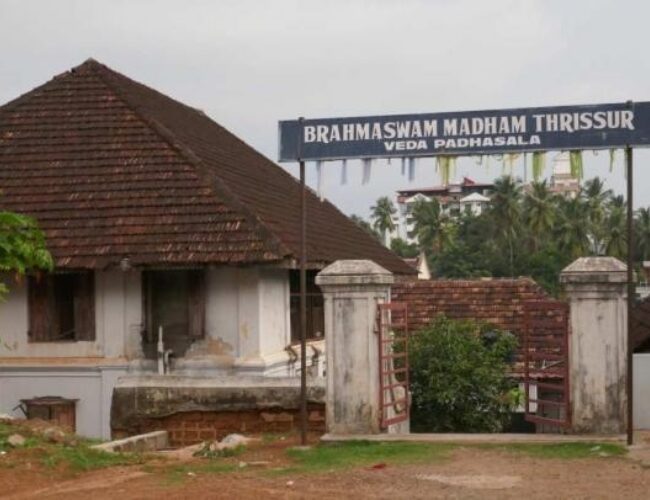The main Hindu monastic complex of the city of Thrissur is one of the most important religious centres of the Indian state of Kerala. Its collection comprises of palm-leaf manuscripts regarding the monist tradition of Śaṅkara. The full collection has never been catalogued, and the humid climate makes preservation necessary.

The Hindu monastic complex of Thrissur is composed of four monasteries. The whole complex belongs to the monist tradition of Śaṅkara (Advaita Vedānta), one of the most influent trends of classical Hinduism. The manuscripts collection is the result of the accretion over time of the archives of the four Mathams, and therefore documents the history of the whole complex, and is among the largest private repositories of manuscripts in South India. The manuscripts consist of bundles of leaves, inscribed on both sides using a procedure of incision followed by inking. The full collection, which has never been catalogued, might amount to a total of about 80,000 leaves.
The hot and humid climate of southern India does not allow palm-leaf manuscripts to survive more than a few centuries. No measures had been taken to ensure a proper conservation of the manuscripts. Insufficient space is allowed for storage, resulting in new damages to the documents at every manipulation.
This preliminary survey project analysed and catalogued over 800 manuscripts in the archive. All surveyed manuscripts were prepared for digitisation and scholarly use. 54 manuscripts were digitised during the project. Staff members were trained in preservation and digitisation.
